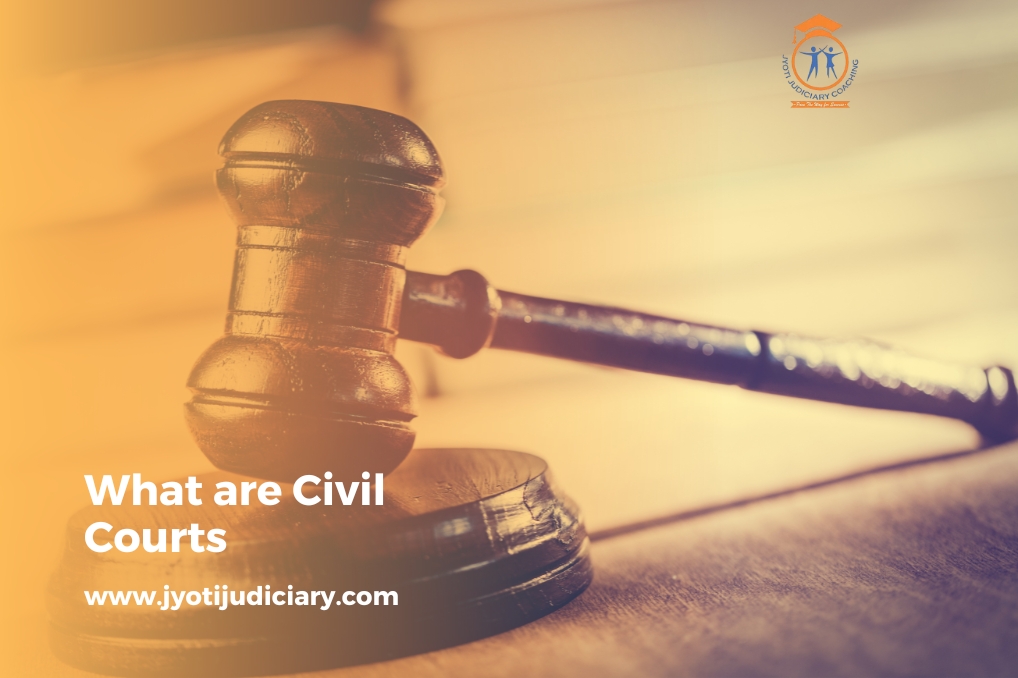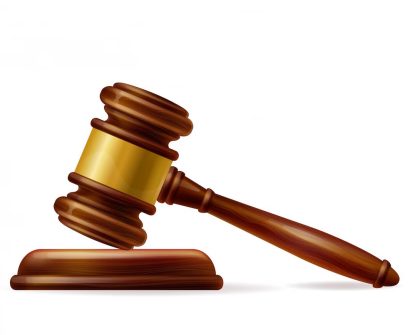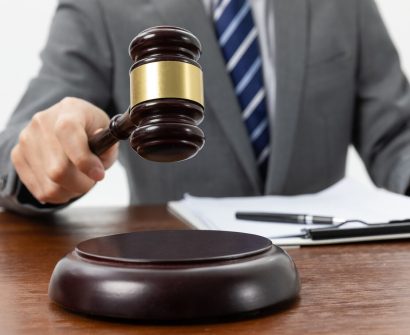
As the foundations of justice in India, civil courts have been tasked with resolving conflicts arising between individuals, associations, or entities in which one party believes the other has caused harm to them or infringed their rights. In an enormously diverse and populous nation like India, the system of civil courts is vital for maintaining the rule of law and assuring that every citizen has the right to justice.
What are Civil Courts?
- A court of law that hears different kinds of civil cases is called a civil court. Hearing civil cases is the civil court’s main goal.
- Criminal cases are not heard by it.
- When someone sues another individual or organization, civil law is used to resolve the issue. Civil proceedings can involve debt or bankruptcy, consumer issues, divorce, or eviction.
What is a Civil Lawsuit?
- A civil court is where a civil suit is filed. It entails one person, known as the plaintiff, bringing a lawsuit against another, known as the defendant, alleging that person has wronged them or damaged their property.
- In a civil lawsuit, the plaintiff typically asks for damages or monetary compensation. On the other hand, it’s possible that they’re requesting equitable damages, such as an injunction, or a court order telling the defendant to stop doing something or take another action.
What is a Civil Trial?
- Trial is employed in civil cases to ascertain the fact in dispute in front of the court.
- A trial is a procedure used in criminal cases to ascertain an accused person’s guilt or innocence.
- Examining the witnesses that have been called by both sides is how the facts in question are ascertained, as is the guilt or innocence of the accused.
What are the Different Types of Civil Cases?
The different types of civil cases that are common are as follows:
- Contract Disputes: The different terms and conditions that the parties agree upon are listed in a contract. When one or both parties deviate from the terms of the agreement, a disagreement arises. A disagreement over agreed-upon terms between landlord and tenant, customers, enterprises, etc. is referred to as a contract dispute. Unless a term is against the applicable legislation under the Indian Contract Act, of 1872, or another applicable law, the contract agreement serves as the foundation for debate in these situations.
- Property Disputes: Property law addresses issues of ownership and damage to a person’s personal belongings. Property conflicts come in many different forms, which a civil litigation lawyer can manage. Property line conflicts are a common one, wherein one-party claims that the other breached the boundary between their two residences for the purpose of planting or building.
- Make a Recovery Suit: A recovery suit starts the legal process to get money back from someone who owes you money but is unwilling to pay it back. The Civil Procedure Code’s Order 4 stipulates the same.
- File an Eviction Suit: Usually, the problem arises when a renter occupies the landlord’s property and refuses to vacate. After determining the tenancy, a claim for eviction is filed with the court to remove the tenant, as opposed to employing force.
- Specific Relief: A civil court action is taken when the parties to a contract demand that the other party carry out a certain conduct in furtherance of the terms stated in the agreement or implied. Under the Specific Relief Act of 1963, the case was brought to light.
What do I need to File a Civil Lawsuit?
A plaint is filed to start a civil lawsuit. A written claim or complaint is called a plaint. The person filing it is referred to as the “plaintiff,” and the person it is filed against is referred to as the “Defendant.”
A plaint includes:
- Name of the Court Parties’ names and addresses where the dispute originated
- Subject (briefly describe the laws and directives that trigger the court’s jurisdiction)
- Principal content or plaintiff’s submissions
- Affirmation from the plaintiff attesting to the accuracy and truthfulness of the information in the plaint.
Civil Judgement: How is the Final Hearing Conducted?
- The arguments, which should only cover the concerns raised, are held on the day of the final hearing.
- Either on the day of the final hearing itself or on another day designated by the court, the court will issue a “final order” following the hearing of the parties’ closing arguments.
- Nonetheless, the parties to the lawsuit may, with the court’s approval, change their pleadings prior to the closing arguments.
What are Civil Courts FAQs
What is the role of civil court?
A civil court is a court of law that handles disputes between private individuals or businesses as opposed to criminal activity. It handles disputes involving finances, debts, real estate, housing, etc.
What are issues in civil court?
In a civil case, an “issue” is a contentious question pertaining to opposing claims in a lawsuit. It serves as the center of a dispute, debate, or choice. It is the moment at which the court rules in favour of one side or the other in the case itself.
How long does a civil court case last?
It is anticipated that civil cases will be resolved in three years. But it is unrealistic to anticipate that a matter will be resolved in that amount of time. It is dependent upon the parties’ responses, the status of the proceedings pending in the relevant courts, and the specifics of the case.
What are the powers of the civil court?
- calling someone to appear in person and question them under oath;
- demanding the production of papers;
- taking testimony from affidavits;
- issuing commissions for the questioning of witnesses or documents
- How a civil suit is filed?
The filing of a plaint with the court initiates every lawsuit. A pleading is filed with the plaint. The court logs the matter and registers it in its files. It’s possible that the court will choose to combine the lawsuit with the ongoing trial.
How powerful is a civil judge?
A Civil Judge takes pleasure in their position’s independence. This suggests that a judicial officer is a master of his court and maintains independence in its operations, even while they are subject to the administrative and supervisory oversight of the higher judiciary.
What is a civil judge?
A civil judge is a member of the judiciary who oversees civil cases, makes sure that trials are fair, and interprets and applies the law.
Can civil courts try all suits of civil nature?
All civil lawsuits may be tried in a civil court unless they are specifically or implicitly prohibited from proceeding.
Who decides the jurisdiction of the civil Court?
Every court has the innate authority to make decisions in its own jurisdiction. A court’s jurisdiction is based on the allegations included in a plaint, not the response presented in a written statement.
How do you prove a civil suit?
In civil trials, the preponderance of the evidence standard applies, but beyond a reasonable doubt is the standard of proof in criminal cases. In the event that neither party presents any evidence, the person bearing the burden of proof would be deemed unsuccessful.
Who can file a civil suit under CPC?
The plaintiff, their advocate, representative, or authorized agency must file a plaint on their behalf. The plaintiffs’ joinder to the litigation is outlined in Order I, Rule 1 of the CPC.
With the goal of giving students the best coaching available for law entrance exams including the CLAT, AILET, and various other numerous state judiciary exams, Jyoti Judiciary Coaching, India’s Finest educational Platform, was established. Come enroll now with Jyoti Judiciary!
For any latest news, legal topics, judiciary exams notifications, patterns, etc watch Jyoti Judiciary’s YouTube channel for legal videos for any updates at https://youtube.com/@jyotijudiciarycoaching4852?si=2cwubh9d2A9urwJf









